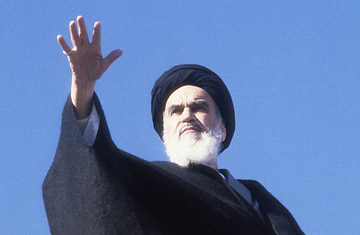
(6 of 8)
Administration officials were also concerned about the protection of sophisticated weaponry. At the Isfahan airbase, some of the 78 advanced F-14 fighter planes equipped to fire Phoenix missiles are housed within concentric rings of security; last week Iranian forces guarding the base suddenly excluded a number of American advisers. U.S. military officials have contingency plans to destroy or spirit out of the country some of the most sensitive equipment if necessary. The most important items are the fighters and 500 Phoenix missiles stored in igloos near by. If there was a clear danger that these missiles might fall into Soviet hands, Pentagon sources suggest, loyal Iranian pilots would fly the planes to safety, possibly Saudi Arabia. U.S. officials fear that any such plans, if carried out without consulting the Iranian government, would be construed, however, as an unwarranted interference in Iran's domestic affairs. Many Iranians were furious that the U.S. was sending emergency supplies of diesel oil to the country's military. The loan suggested to them that Washington was implicitly supporting the army's brutality against civilians.
Those who know the Ayatullah expect that eventually he will settle in the Shi'ite holy city of Qum and resume a life of teaching and prayer. It seems improbable that he would try to become a kind of Archbishop Makarios of Iran, directly holding the reins of power. Khomeini believes that Iran should become a parliamentary democracy, with several political parties. But he is unlikely to withdraw to shadows and silence until Iran adopts a new constitution and the threat of civil war is removed.
To avoid more bloodshed, the Ayatullah may have to make some concessions. Says Massoud Behnoud, a Tehran lawyer: "If Khomeini reaches some kind of compromise with the Bakhtiar government, he can bring the country peaceably to a referendum on a new constitution. He doesn't even have to fear chaos too greatly. He already has 90% of the people with him. If he now begins to share his absolute power and allow other groups to speak out more, we will be on our way to liberty. Khomeini's real power will be that of the religious leader of Iran."
Khomeini's success with the army depends largely on how he handles the sensitive issue of the constitution, which has become a rallying point for pro-monarchy commanders. Several of Khomeini's associates, including Karim Sanjabi, leader of the National Front, the main political opposition, believe that the Ayatullah might agree to use the present constitution as a device for the transition of power. "The army will go along with any government that is representative," says Sanjabi. "If Bakhtiar resigns, it is not difficult to find a solution based on a temporary government accepted by the people." At week's end, the Khomeini strategy seemed to be one of waiting for members of parliament and the regency council to resign. So far 72 out of 200 deputies in the legislature have resigned; if half do so, a Khomeini aide said, Bakhtiar's government has no legal basis.
